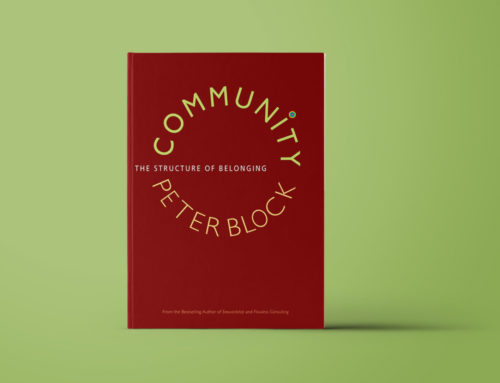The other day i borrowed and read ‘Dear Ijeawele: or a feminist manifesto in fifteen suggestions’ by Nigerian author, Chimamanda Ngozi Adichie.
My friend Heidi had just finished reading it and had it with her on a recent weekend away and so i asked if i could borrow it.
At 60ish pages it feels a little more like an extended pamphlet than a book and it was easy to munch down in one session – i am now on the lookout for Amerikanah which is one of her other hit books [along with We should all be Feminists].
Chatting to Heidi yesterday i told her that i had really enjoyed it and that i wasn’t offended at all, but we agreed that it might have been because i already get a lot of the stuff. For someone who doesn’t get or practice any of it, this might be a bit of a mind shift or challenge to the status quo. And while i don’t agree with every single idea in the book, the overwhelming majority of it is really brilliant and it should be read by all parents [and non-parents as well, cos we tend to be around other people’s children, and this is helpful stuff!]
The book is literally 15 suggestions written to a friend of hers who asked Chimamanda how to raise her daughter as a feminist. The one extract i want to share deals with measuring a person against the very best version of themselves, rather than comparing them to other people. But i will start a little bit earlier to give you a taste – here are three extracts from the same suggestion:
THIRD SUGGESTION
Teach her that the idea of ‘gender roles’ is absolute nonsense. Do not ever tell her that she should or should not do something because she is a girl.
‘Because you are a girl’ is never a reason for anything. Ever.
I remember being told as a child to ‘bend down properly while sweeping, like a girl’. Which meant that sweeping was about being female. I wish I had been told simply, ‘bend down and sweep properly because you’ll clean the floor better’. And I wish my brothers had been told the same thing.
There have been recent Nigerian social media debates about women and cooking, about how wives have to cook for husbands. It is funny, in the way that sad things are funny, that we are still talking about cooking as some kind of marriageability test for women.
The knowledge of cooking does not come pre-installed in a vagina. Cooking is learned. Cooking – domestic work in general – is a life skill that both men and women should ideally have. It is also a skill that can elude both men and women.
We also need to question the idea of marriage as a prize for women, because that is the basis of those absurd debates. If we stop conditioning women to see marriage as a prize, then we would have fewer debates about a wife needing to cook in order to earn that prize.
It is interesting to me how early the world starts to invent gender roles. Yesterday I went to a children’s shop to buy Chizalum an outfit. In the girl’s section were pale creations in washed-out stages of pink. I disliked them. The boy’s section had outfits in vibrant shades of blue. Because I thought blue would be adorable against her brown skin – and photograph better – I bought one. At the checkout counter, the cashier said mine was the perfect present for the new boy. I said it was for a baby girl. She looked horrified. “Blue for a girl?”
= = = = = =
I looked at the toy section, which was also arranged by gender. Toys for boys are mostly active, and involve some kind of doing – trains, cars – and toys for girls are mostly passive and are overwhelmingly dolls. I was struck by this. I had not quite realised how early society starts to invent ideas of what a boy should be and what a girl should be.
I wished the toys had been arranged by type, rather than by gender.
Did I ever tell you about going to a US mall with a seven-year-old Nigerian girl and her mother? She saw a toy helicopter, one of those things that fly by wireless remote control, and she was fascinated and asked for one. ‘No,’ her mother said, ‘You have your dolls.’ And she responded, ‘Mummy, is it only dolls I will play with?’
I have never forgotten that. Her mother meant well, obviously. She was well versed in the ideas of gender roles – that girls play with dolls and boys with helicopters. I wonder now, wistfully, if the little girl would have turned out to be a revolutionary engineer, had she been given a chance to explore that helicopter.
If we don’t place the straitjacket of gender roles on young children, we give them space to reach their full potential. Please see Chizalum as an individual. Not as a girl who should be a certain way. See her weaknesses and her strengths in an individual way. Do not measure her on a scale of what a girl should be. Measure her on a scale of being the best version of herself.
= = = = = =
Gender roles are so deeply conditioned in us that we will often follow them even when they chafe against our true desires, our needs, our happiness. They are very difficult to unlearn, and so it is important to make sure that Chizalum rejects them from the beginning. Instead of letting her internalise the idea of gender roles, teach her self-reliance. Tell her that it is important to be able to do for herself and fend for herself. Teach her to try to fix physical things when they break. We are quick to assume girl’s can’t do many things. She might not fully succeed, but let her try. Buy her toys like blocks and trains – and dolls, too, if you want to.
= = = = = =
Some powerful thoughts in there. i think for the last one that i would lean towards a lesson of interdependence over self-reliance, but i think the point of that is a good one as well.
Anyways, very well worth the quick read and so great to see such powerful writing coming from a strong female African voice…
Might be a good book to buy as a gift for parents you know who have young girls as there are a wealth of life lessons in here…







Leave a Reply